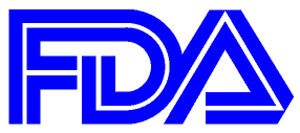U.S. FDA Issues A Warning Letter to Canadian “International Prescription Service Provider” CanaRx
 According to The Washington Post, the U.S. Food and Drug Administration (FDA) issued a warning letter to a Canadian company that officials stated has sold unapproved and misbranded drugs to U.S. citizens. According to the letter, CanaRx contracted with certain public and private sector employers to provide prescription drugs to their employees. Acting as a broker between the foreign pharmacies and employer-sponsored health insurance plan, CanaRx arranges for prescriptions submitted for U.S. patients to be reissued by foreign physicians so that they could to be filled by overseas pharmacies. Then, those foreign pharmacies shipped medicine directly to the patients in the U.S.
According to The Washington Post, the U.S. Food and Drug Administration (FDA) issued a warning letter to a Canadian company that officials stated has sold unapproved and misbranded drugs to U.S. citizens. According to the letter, CanaRx contracted with certain public and private sector employers to provide prescription drugs to their employees. Acting as a broker between the foreign pharmacies and employer-sponsored health insurance plan, CanaRx arranges for prescriptions submitted for U.S. patients to be reissued by foreign physicians so that they could to be filled by overseas pharmacies. Then, those foreign pharmacies shipped medicine directly to the patients in the U.S.
CanaRx claims on their website that they contract with government-licensed physicians, pharmacists, and pharmacies from Tier-1 countries, but Tier-1 status does not guarantee the safety or effectiveness of a medicine. Earlier this year, a wholesale distributor in Switzerland discovered they had been sold a counterfeit cancer medication – Iclusig. Even if the doctor and pharmacy have licenses in the country that CanaRx has the prescription filled in, sending that prescription to a patient in the U.S. is illegal. According to the FDA, the “United States Federal Food, Drug, and Cosmetic Act (The Act) prohibits the interstate shipment (which includes importation) of unapproved new drugs. Thus, the importation of drugs that lack FDA approval, whether for personal use or otherwise, violates the Act and is illegal.”
In a press release announcing the warning letter, FDA Commissioner Scott Gottlieb, M.D. stated that “Operations like CanaRx use their names to imply that patients are receiving medicines approved in Canada, when it’s likely that patients are receiving medicines from other countries, and which may be sub-potent, super-potent or counterfeit.” Of particular concern is the fact that CanaRx facilitated the distribution of drugs for which the FDA-approved versions require special handling or specific safety requirements when the drugs are administered to patients (called REMS programs) due to associated risks that need to be managed to protect patients. One such medication distributed by CanaRx is Tracleer, which treats certain types of pulmonary arterial hypertension. The FDA restricts distribution of this drug to health care providers who comply with the requirements of REMS in order to minimize the risk of fetal exposure and serious birth defects in female patients taking the drug and the risk of liver damage to all patients. When CanaRx facilitated the distribution of Tracleer, no such safeguards were in place.
Medicines listed as unapproved in the letter included:
- Baraclude, which treats hepatitis
- CellCept and Zortress, which prevent organ rejection
- Foradil, which treats asthma/COPD
- Gilotrif, Gleevec, Inlyta, and Stivarga, which treat cancer
- Invirase, Norvir, Reyataz, and Truvada, which treat HIV
- Tegretol, which treats epilepsy/nerve pain
- Tracleer, which treats pulmonary arterial hypertension
In an interview with The Washington Post, Gottlieb said that the letter was not “politically motivated.” “This is about safety,” Gottlieb said. “This is about creating very unsafe conditions for American consumers, and deceiving consumers.” CanaRx has ten working days to respond to the FDA’s warning letter.